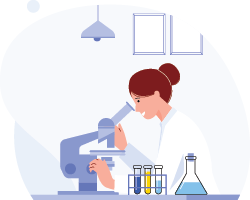Over the past year we have become aware of the different testing methods available for COVID-19. For those who have travelled to Thailand in the past year and underwent ASQ you would have had the PCR test, or maybe you’ve just heard about it in the news.
COVID-19 tests are also a requirement if you wish to travel overseas. For example if you’re traveling into Thailand you must provide a negative test result within 72 hours of travel, and continue to be tested on your arrival in Bangkok.
How are the tests rated?
Sensitivity and specificity are the two concepts used to define a test. A good explanation can be found on Cochrane UK blog:
Sensitivity is the proportion of people WITH Disease X that have a POSITIVE blood test. A test that is 100% sensitive means all diseased individuals are correctly identified as diseased i.e. there are no false negatives.
Specificity is the proportion of people WITHOUT Disease X that have a NEGATIVE blood test. A test that is 100% specific means all healthy individuals are correctly identified as healthy, i.e. there are no false positives.
False positives results can cause psychological damage (groundless stress, fear of infecting others, isolation, etc.), leading to unnecessary quarantine.
False negative results might give inaccurate relief, leading to relaxed behaviours and restrictions despite infection and being contagious.
There are currently 2 different types of COVID-19 test methods available.
- Diagnostic tests which look for active Coronavirus infections in your mucus or saliva, and tell us whether you might be currently infected. For example: the PCR test and the Antigen test.
- Blood tests which searches for antibodies in your blood, checking for evidence of whether you’ve been infected in the past. For example: the Antibody test.
Both of these testing methods search for the SARS-CoV-2 virus or the antibodies against SARS-CoV-2, but neither of them are perfect.
It’s important to understand what you’re looking for before your doctor or health care provider requests a test. The three main types of tests include:
- Molecular tests (sometimes referred to as PCR or RNA tests)
- Antigen tests (known as the rapid test)
- Antibody tests (aka blood tests)
There are other types of tests available, but the following 3 are the main types of tests.
Molecular test
The Molecular test is also known as a viral test, nucleic acid amplification test (NAAT), RT-PCR test, or PCR test. It shows that you might be infected with the virus.
PCR, or polymerase chain reaction, refers to the lab technique used to convert any virus RNA (Ribonucleic acid) in your sample into DNA, and “amplifies” it by making millions of copies of the DNA which the molecular test can then detect. This is currently one of the most accurate tests available.
Collection method: Nasal swabs, throat swabs, nasopharyngeal swab, or saliva.
Delay to get results: Need to send samples to lab and results generally take 24h or more
Limitations: There’s a delay between infection and when the virus level is high enough in the body to be detected. A negative might be a “false negative”.
As PCR tests detects the virus by amplifying viral RNA in cycles, if going beyond a certain cycle threshold protocol, the testing method might detect a tiny virus fragment. This does not necessarily mean you’re infected nor contagious but will likely trigger a “false positive”.
Antigen test
 The Antigen test is also known as the rapid test - it is quick and cheap, but less accurate than the Molecular PCR test.
The Antigen test is also known as the rapid test - it is quick and cheap, but less accurate than the Molecular PCR test.
The Antigen test method looks for protein fragments (antigens) from the virus, and detects if you are currently infected with the virus.
Collection method: Nasal swabs, nasopharyngeal swab (same collection method as the PCR test).
Delay to get results: The Antigen test can deliver results in 1 hour or less, and you don’t need to send the sample to the lab.
Limitations: The Antigen test cannot detect low levels of virus. So if tested negative, it could be a “false” negative. If you’re displaying symptoms and test negative, then your doctor may request a PCR test to make sure it’s not a false negative.
Antibody test
 The Antibody test is also referred to as a serological test, serology test or blood test. This test detects antibodies against the SARS-CoV-2 in the blood, and will show positive only after a certain number of days after the start of the infection.
The Antibody test is also referred to as a serological test, serology test or blood test. This test detects antibodies against the SARS-CoV-2 in the blood, and will show positive only after a certain number of days after the start of the infection.
The Antibody or blood test will indicate if you’ve been infected with the Coronavirus sometime in the past. However, a positive antibody test does not assert that you are currently infected with the virus, and therefore contagious.
Collection method: Test via blood sample.
Delay to get results: It can take at least a day to get the results.
Limitations: It tells if you’ve been infected with the virus in the past, but it doesn’t confirm whether you’re currently infected.
At present there is no testing method to prove if the person is contagious or not. So even if someone tests negative, they could still be carrying the virus (with or without symptoms).
Also there is no clear information about how long the antibodies last in the human body. Getting the virus does not seemingly grant long-lasting immunity. People can get infected more than once, even months after their first infection. More information about Covid-19 can be found in our Guide to Covid-19.
.png)



